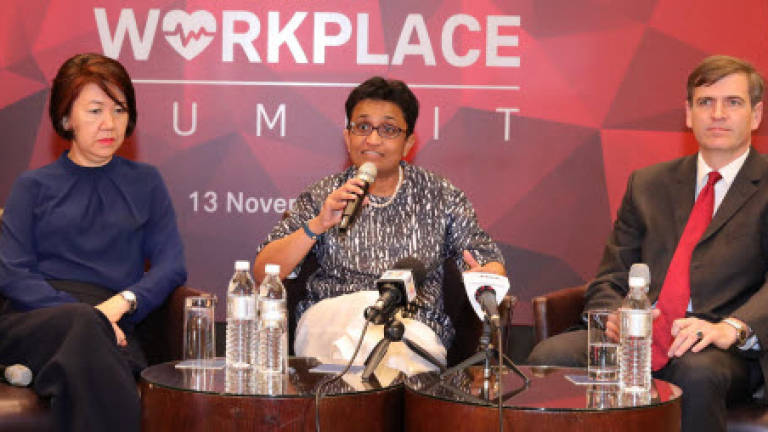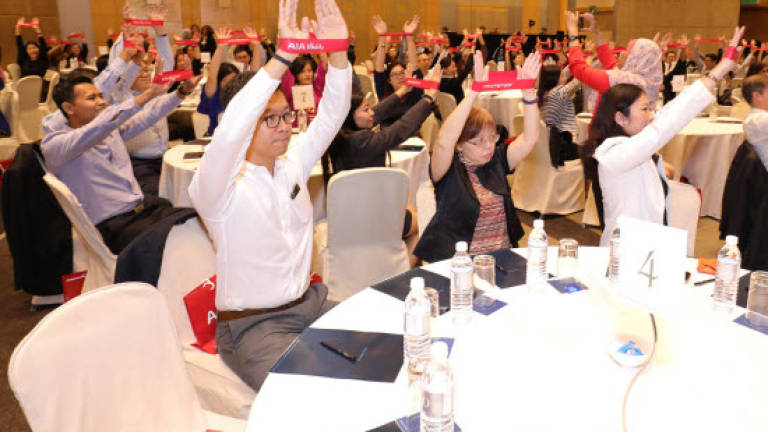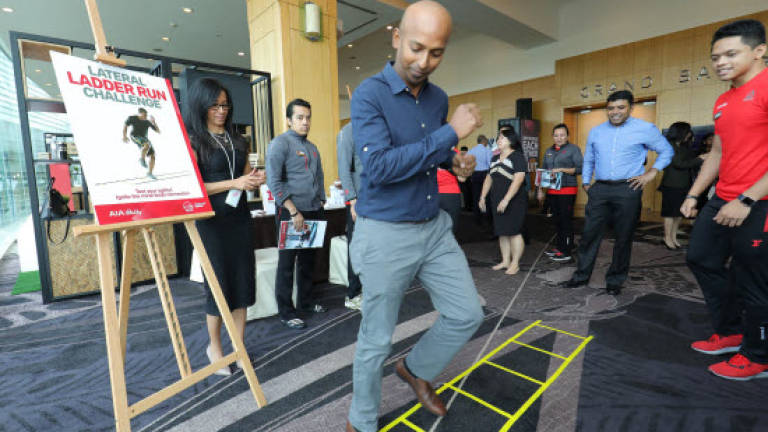For better, not worse



AIA MALAYSIA (AIA) announced the findings of its inaugural survey – Malaysia’s Healthiest Workplace by AIA Vitality. The information gleaned from the inquiry was disclosed at the Malaysia’s Healthiest Workplace Summit held at the Hilton Hotel Kuala Lumpur.
According to sources in AIA, the survey garnered the participation of over 5,300 employees from 47 organisations of various sizes. It analysed data pertaining employee lifestyle and considered clinical indicators and mental health.
Main objectives were to:
▶ assess employee’s work spaces and its impact on health and productivity, create awareness among employers and employees;
▶ engage with employees on modifiable risk factors and change behaviours; and
▶ share evidence-based results for employers to improve the health and wellbeing of their employees.
AIA commissioned research agency RAND Europe and Universiti Kebangsaan Malaysia to conduct the survey.
ALARMING INSIGHTS
According to RAND Europe vice president Dr Christian van Stolk, the survey revealed that:
▶ companies in Malaysia lost 67 days of work time per employee in a year due to absenteeism and presenteeism (lost of productivity from sick employees who still show up for work);
▶ 64% of the Malaysian workforce are physically inactive;
▶ 12.5% of Malaysian employees are obese;
▶ 90% of employees do not have a balanced diet;
▶ 12% of employees in Malaysia experience high levels of anxiety or have depressive symptoms;
▶ 11% of Malaysian employees smoke – higher than Australia, Singapore and Hong Kong;
▶ 67% of employees put up with at least one sleep problem;
▶ 53% of workers sleep less than seven hours a night; and
▶ Malaysian employees are found to be prone to more health risks than employees in three other countries.
After elaborating on the results of the analysis, van Stolk surmised the financial implications of these findings and went straight to the point. “To put things into perspective, this means that the average cost of health-related absence and presenteeism per organisation in Malaysia is estimated at RM2.7 million,” he said.
POSSIBLE CAUSE
According to the doctor, one of the reasons employees come to work despite their health issues is the demand that their jobs entail.
“Research studies have shown that presenteeism can be linked to workplace policies which have been put in place to manage absenteeism. Job demands also come into play, with heavy workloads, under-staffing, overtime and looming deadlines, all motivating people to work even though they are in less than optimal health,” van Stolk shared.
His statement was reinforced by the results from the analysis which showed that Malaysians worked the longest hours – on average 15 hours more than their contracted hours each week, compared to employees in Singapore, Hong Kong and Australia.
CALL FOR ACTION
As the information is now made known, the doctor highlighted the importance for company stakeholders, owners of large and small enterprises, government-run outfits, generally all employers, to act upon the findings.
“Singing to the same tune” was AIA CEO Anusha Thavarajah, who reiterated the intention of the survey and the purpose the company conducted it. “For us at AIA, the journey to promoting workplace wellness has just begun. Armed with the data from this inaugural survey, we hope to work together with the government, corporate Malaysia, healthcare providers and the community at large, to enact policies and practices that can help Malaysia’s workforce live longer, healthier and better lives.”
To note: Employers need to come up with ways and means to intervene risking ill-health among its employees by providing healthier working environments, while employees need to “stand firm” and practise healthier living by making healthier choices, even at the workplace. For more information, visit www.healthiestworkplace.aia.com